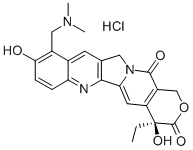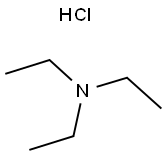CysteamineHydrochloride , 97% , 156-57-0
Synonym(s):
β-Mercapto-ethylamine hydrochloride;2-Amino-ethane-thiol hydrochloride;2-Aminoethanethiolhydrochloride, Cysteamine hydrochloride, 2-Mercaptoethylamine hydrochloride;2-Mercapto-ethyl-amine hydrochloride;Cysteaminium chloride
CAS NO.:156-57-0
Empirical Formula: C2H8ClNS
Molecular Weight: 113.61
MDL number: MFCD00012904
EINECS: 205-858-1
| Pack Size | Price | Stock | Quantity |
| 5g | RMB31.20 | In Stock |
|
| 25g | RMB95.20 | In Stock |
|
| 100g | RMB239.20 | In Stock |
|
| 500g | RMB799.20 | In Stock |
|
| 2.5kg | RMB2399.20 | In Stock |
|
| others | Enquire |
PRODUCT Properties
| Melting point: | 67-71 °C |
| Boiling point: | 238.5℃[at 101 325 Pa] |
| Density | 0.75 |
| vapor pressure | 5.333Pa at 25℃ |
| refractive index | 1.6100 (estimate) |
| storage temp. | 2-8°C |
| solubility | H2O: 1 m at 20 °C, clear, colorless |
| form | Crystalline Powder or Pellets |
| color | White |
| PH | 3.3-5.0 (400g/l, H2O, 20℃) |
| biological source | synthetic (organic) |
| Water Solubility | VERY SOLUBLE |
| Sensitive | Hygroscopic |
| λmax | λ: 280 nm Amax: ≤0.3 |
| Merck | 14,2779 |
| BRN | 3590083 |
| Stability: | Stable, but hygroscopic. Incompatible with strong oxidizing agents. |
| InChIKey | OGMADIBCHLQMIP-UHFFFAOYSA-N |
| LogP | -2.14 at 25℃ |
| CAS DataBase Reference | 156-57-0(CAS DataBase Reference) |
| EPA Substance Registry System | Cysteamine hydrochloride (156-57-0) |
| Absorption | cut-off at 270nm in H2O at 1M |
Description and Uses
Cysteamine is a stable aminothiol with radioprotective activities. It reduces ionizing radiation-induced death and chromosomal damage in mice in a dose-dependent manner. Cysteamine binds rapidly and temporarily to plasma proteins upon administration and this activity is directly correlated to its radioprotective effects. In vitro, 0.1 mM cysteamine depletes 90% of free cystine from cystinotic fibroblasts. Formulations containing cysteamine have been used to treat nephropathic cystinosis and reduce glomerular deterioration in humans.
Cysteamine hydrochloride has been used in the in-situ generation of chiral cysteamine-capped cadmium sulfide quantum dots (CA-CdS QDs) for the sensing of Cd2+ and S2-.
Safety
| Symbol(GHS) |  GHS07 |
| Signal word | Warning |
| Hazard statements | H302-H317-H319-H335 |
| Precautionary statements | P261-P264-P280-P301+P312-P302+P352-P305+P351+P338 |
| Hazard Codes | Xn,Xi |
| Risk Statements | 22-36/37/38 |
| Safety Statements | 36/37/39-26-36 |
| RIDADR | UN 3335 |
| WGK Germany | 3 |
| RTECS | KJ0200000 |
| F | 1-3-10-13 |
| TSCA | Yes |
| HS Code | 29309070 |
| Toxicity | LD50 orally in Rabbit: 642 mg/kg |




